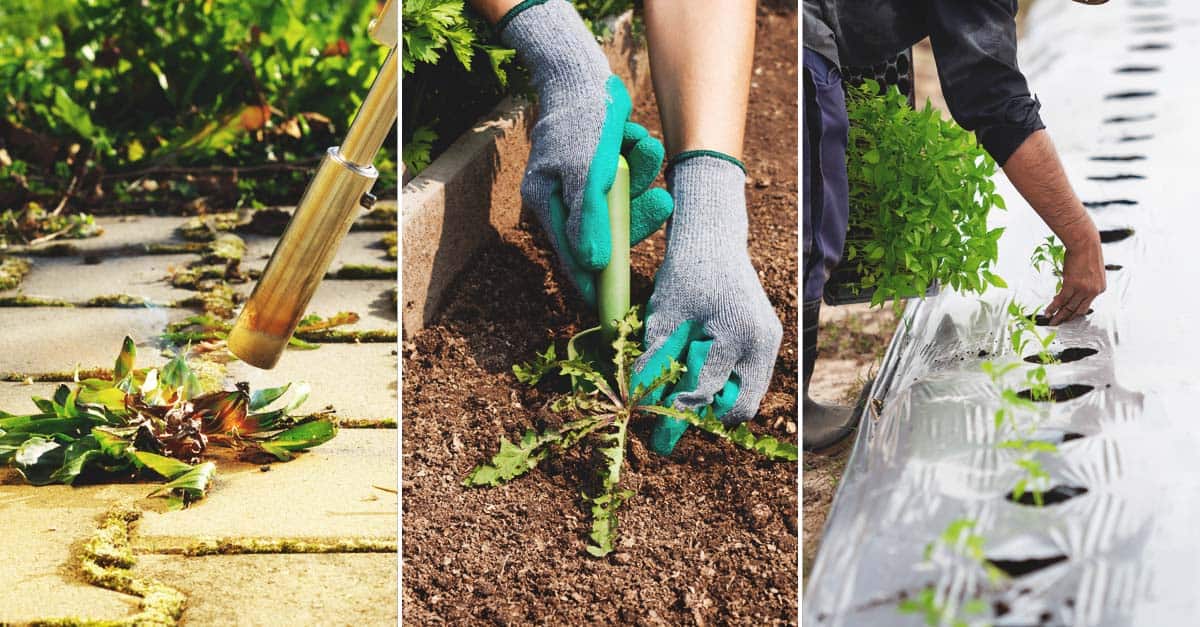How to Control Weeds Organically: A Comprehensive Guide

Are you tired of seeing unwanted guests in your garden? Weeds can be as stubborn as that houseguest who just won’t leave. But before you reach for the chemical weed killers, consider this: organic methods for weed control can be just as effective and much kinder to the environment. Let’s dive into the world of eco-friendly weed control and discover how you can maintain a beautiful, organic garden without the use of harsh chemicals.
Understanding Weeds: The First Step to Organic Control
Before we can tackle the problem, we need to understand what weeds are and why they thrive. Weeds are simply plants growing where they are not wanted. They compete with your desired plants for water, nutrients, and sunlight. But why do they seem to grow so well? The answer lies in their adaptability and resilience. Weeds are masters of survival, able to thrive in the harshest conditions.
Prevention: The Best Organic Weed Control
As the old saying goes, “An ounce of prevention is worth a pound of cure.” The same applies to weed control. By taking preventive measures, you can significantly reduce the number of weeds in your garden.
Healthy Soil, Healthy Garden
The foundation of any successful garden is healthy soil. Weeds often thrive in poor soil conditions. By improving your soil with organic matter like compost, you create an environment that favors your desired plants over weeds.
Mulching: A Natural Weed Barrier
Mulching is one of the most effective organic techniques for weed prevention. A layer of organic mulch, such as wood chips or straw, can block sunlight and prevent weed seeds from germinating. Plus, it helps retain moisture and improves soil health.
Proper Planting Techniques
Planting your desired plants closely together can help crowd out weeds. By filling your garden beds with a variety of plants, you leave less room for weeds to take root.
Organic Methods for Weed Control: The Natural Approach
Even with the best preventive measures, some weeds will inevitably find their way into your garden. But don’t worry, there are plenty of natural weed killer options and organic gardening techniques to keep them at bay.
Hand Weeding: The Old-Fashioned Way
Sometimes, the simplest methods are the best. Hand weeding is a tried-and-true technique for organic weed control. The key is to pull weeds when they are young, before they have a chance to set seed.
Solarization: Harnessing the Power of the Sun
Solarization is a technique that uses the sun’s heat to kill weed seeds and pathogens in the soil. By covering the soil with a clear plastic sheet during the hottest months of the year, you can effectively sterilize the top layer of soil.
Corn Gluten Meal: A Natural Pre-Emergent Herbicide
Corn gluten meal is a byproduct of corn processing that acts as a natural pre-emergent herbicide. It inhibits the germination of weed seeds by drying out the seedling roots. Plus, it’s high in nitrogen, making it a great organic fertilizer.
Vinegar: A Versatile Natural Weed Killer
Vinegar is a popular natural weed killer due to its high acidity. It works by burning the leaves of the weeds, causing them to wither and die. However, it’s important to note that vinegar is non-selective, meaning it will kill any plant it comes into contact with, so use it carefully.
Eco-Friendly Weed Control: Beyond the Basics
For those looking to take their organic gardening to the next level, there are several advanced eco-friendly weed control methods to consider.
Living Mulches: Nature’s Weed Barrier
Living mulches, also known as cover crops, are plants that are grown specifically to suppress weeds. They work by competing with weeds for resources and creating a dense canopy that blocks sunlight.
Flame Weeding: A Hot Solution
Flame weeding involves using a propane torch to burn the leaves of the weeds, causing them to die. This method is particularly effective for controlling weeds in cracks and crevices where other methods may not be practical.
Biological Control: Enlisting Nature’s Help
Biological control involves using natural predators to control weeds. For example, certain insects and diseases can be introduced to target specific weed species. This method requires careful planning and monitoring to ensure that the introduced organisms do not become a problem themselves.
Conclusion: Embracing Organic Methods for Weed Control
Controlling weeds organically is not just about finding natural alternatives to chemical herbicides. It’s about creating a healthy, balanced ecosystem in your garden where desired plants thrive and weeds struggle to gain a foothold. By embracing organic methods for weed control, you can enjoy a beautiful, eco-friendly garden that is safe for you, your family, and the environment.
So, are you ready to say goodbye to chemical weed killers and hello to a healthier, more sustainable garden? The journey to organic gardening may seem daunting, but with the right tools and knowledge, you can create a garden that is not only beautiful but also beneficial to the environment.
FAQs
What is the best natural weed killer? The best natural weed killer depends on your specific needs and the type of weeds you are dealing with. Vinegar, corn gluten meal, and flame weeding are all effective options for different situations.
How can I prevent weeds from growing in my garden? Preventing weeds involves creating an environment that favors your desired plants. This can be achieved through healthy soil, proper planting techniques, and the use of organic mulches.
Is vinegar safe to use as a weed killer? Vinegar is safe to use as a weed killer, but it is non-selective, meaning it will kill any plant it comes into contact with. It’s important to use it carefully to avoid harming desired plants.
What are living mulches and how do they help control weeds? Living mulches, also known as cover crops, are plants that are grown specifically to suppress weeds. They work by competing with weeds for resources and creating a dense canopy that blocks sunlight.
Can I use biological control methods for weed control in my garden? Yes, biological control methods can be used to control weeds in your garden. However, it’s important to research and plan carefully to ensure that the introduced organisms do not become a problem themselves.


For more information on organic gardening and eco-friendly weed control, check out these authoritative resources:
0 Response to "How to Control Weeds Organically: A Comprehensive Guide"
Post a Comment